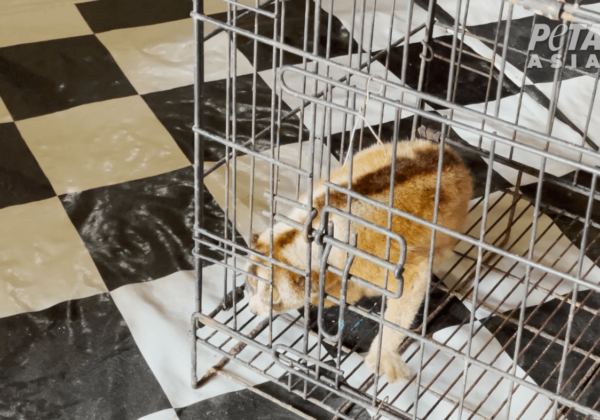Shocking: Stones Thrown at Sleeping Hippo to Get the Animal’s Attention at Chinese Zoo
A mother and daughter were filmed throwing rocks at a hippopotamus at a zoo in China because the animal wasn’t facing their direction. Their cruel actions encouraged two others to join in and abuse the hippo before they were asked to stop by zoo staff.
https://www.youtube.com/watch?v=fGbWgQLp9Cg
The mother and girl left the zoo with only a verbal warning. The hippopotamus remains stuck in captivity at the zoo and is subject to a lifetime of abuse, mistreatment, neglect, and misery in a prison cell.
The zoo states that there are signs advising visitors not to throw food or objects at animals. This makes us wonder: How often do attacks like this happen?
It’s not only visitors who have been caught harassing animals but also the very people who are supposed to care for them. Earlier this year, videos were broadcast of a zookeeper abusing a tiger by riding the animal and grabbing and pulling his or her ears and tail.
And earlier this week, investors were filmed throwing a live donkey into a tiger enclosure at a zoo.
WTF! Tigers fed LIVE donkey at Chinese zoo in horrific video ? [Warning: graphic content] ➡️ https://t.co/nQT7B8SjKV pic.twitter.com/ngjKfUZRkD
— PETA Asia (@PETAAsia) June 8, 2017
It’s not surprising that zookeepers and visitors have so little respect for animals when the actual establishments themselves act against the interest of the animals they supposedly care for.
Zoos teach people that it’s acceptable to interfere with animals and to keep them locked up in captivity, where they’re bored, cramped, lonely, deprived of all control over their lives, and far from their natural homes.
Zoos generally regard the animals they keep as mere commodities. They’re regularly bought, sold, borrowed, and traded with little regard for their established relationships.
Zoos claim to provide educational opportunities, but most visitors spend only a few minutes at each display, seeking entertainment rather than enlightenment. Most zoo enclosures are very small, and rather than promoting respect for or understanding of animals, signs often provide little more information than an animal’s species, diet, and natural range. Animals’ normal behavior is seldom discussed—much less observed—because their natural needs are rarely met.
What You Can Do
- Never patronize zoos. The money spent on tickets pays for animals to be imprisoned and traded, not rescued and rehabilitated.
- If your local zoo solicits money from corporate donors or charitable organizations and foundations, write to its sponsors and encourage them to put their money toward protecting animals in the wild instead.
- Encourage your local zoo to stop breeding animals, to pledge never to accept any animals captured from the wild, and to make space available for rescued exotic animals in need of a permanent home.
Instead of going to the zoo, you can learn about animals by watching nature documentaries or observing the animals in their own natural habitats instead.









